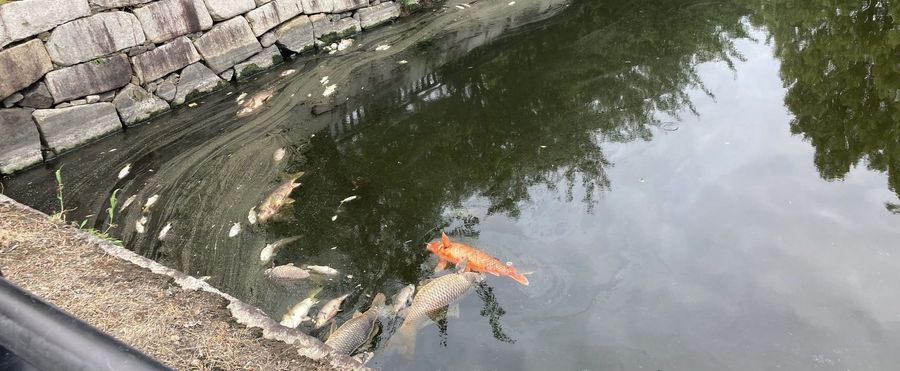In a perplexing event, over a hundred fish have been found dead in the moat of Osaka Castle, a treasured historical site in Japan. The cause of this sudden fish die-off is yet unknown, which has spurred immediate investigations by environmental scientists and authorities. This incident is causing both worry and curiosity amongst locals and tourists alike, who regularly visit or pass the vicinity.
In Japan, incidents such as these trigger immediate concern due to the nation's deep respect for nature and wildlife. Respect for natural harmony or 'wa' is a key element in the traditional Shinto religion, and this cultural value extends to the general societal mindset. The fact that this has occurred in an iconic and historically significant location like Osaka Castle adds an extra layer of national spotlight to the issue.
Similar environmental issues in the US and EU are handled with similar urgency, with investigations conducted to determine the cause of the incident. Public engagement may differ, however, as Japan's cultural values may make such incidents more emotionally impactful.

